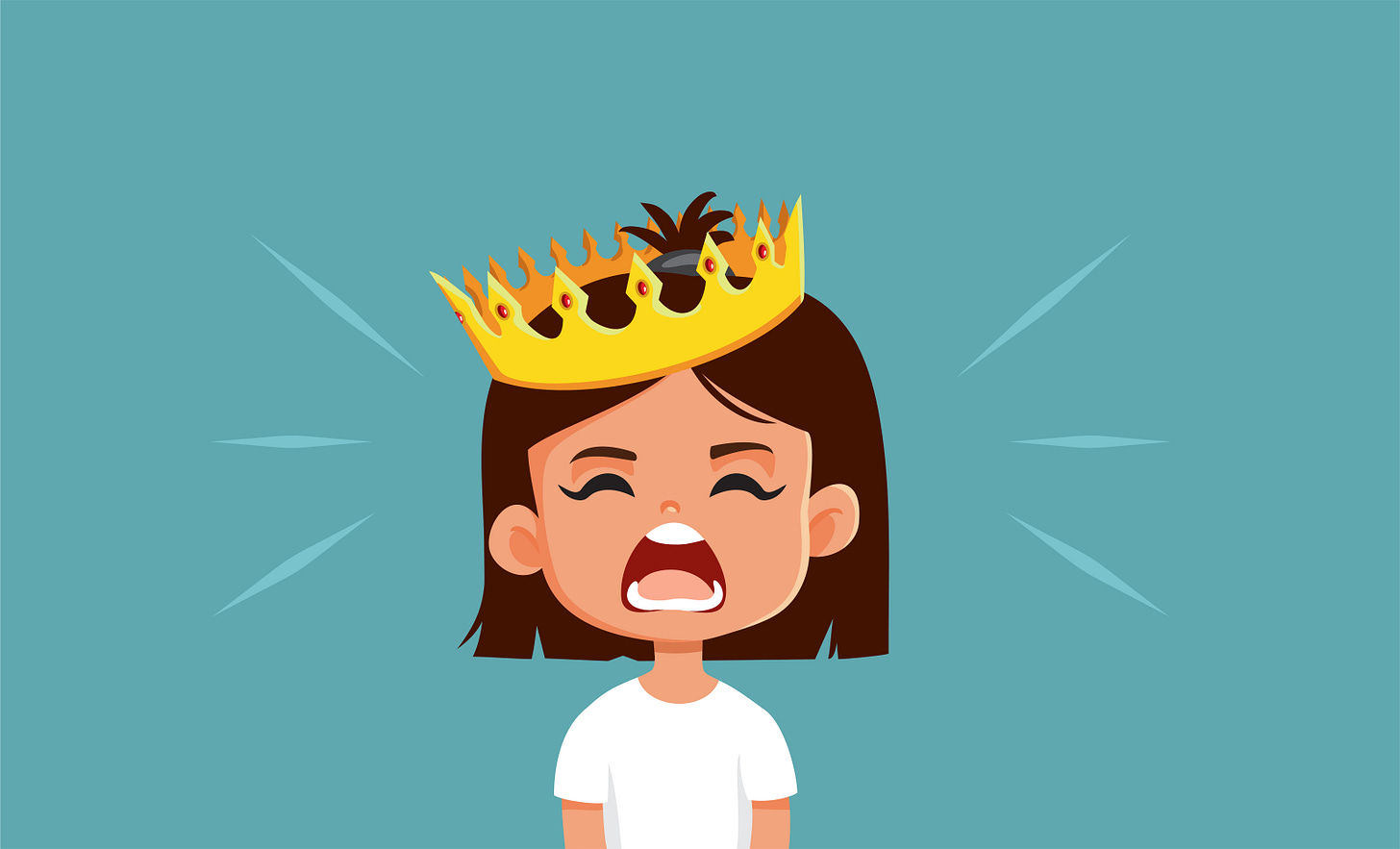Entitled to the Wrong Things
"the basic necessities I can take or leave, but goddammit, you better provide me with extravagant emotional satisfaction at all times"
Subscriber writing post should be out tonight, but if not, tomorrow AM. Sit tight.
This Vulture piece about Inside Out 2, box office juggernaut and sequel to Pixar’s most overrated movie, asks whether a non-reveal constitutes a deliberate trolling. It seems that in the movie, which I haven’t yet seen, protagonist Riley attends hockey camp and develops a fixation on an older girl. And because the internet has banished the idea of platonically idolizing someone, as it has with the idea of passionate same-sex friendship, the writer at Vulture assumed that this would be revealed as Riley’s coming out story. Alas, the after-credits sequence does not confirm that reading, and if you search around a little on various networks like Tumblr and Twitter, you will see that people are big mad about that. If you’re bold, you might even tell some of these excitable types that Riley isn’t gay, and observe the reaction. I suggest you use a burner if you do. They’ll kill you.
This has become one of the most reliable dynamics in contemporary online life, a relatively small group of extremely committed fans deciding that a certain character must be gay, or that two or more characters must be involved in some sort of queer relationship, and ritualistically scourging anyone of a different opinion. When the Star Wars film The Force Awakens was released, a subset of fans decided that John Boyega’s Finn and Oscar Isaac’s Poe were romantically involved. Rather than letting this be a fun little fan theory, they became legendarily aggressive, brigading Tumblrs that “shipped” Finn and Daisy Ridley’s character Rey in particular and accusing anyone who questioned their theories of being homophobic. That has become a predictable tactic - if you reject any particular theory that a fictional character is part of the LGBTQ community, there is a fanbase that will accuse you of hating queer people. It’s all as healthy as you’d expect. Wishcasting about fictional characters has become bloodsport.
For the record, representation does indeed matter. It’s just a question of when and how it matters and how much it matters. Contemporary liberal opinion is that it matters more than producing a work of genuine artistic quality; this is why we keep getting movies and shows that are triumphs of representation and dogshit as art, which ultimately might be a greater insult to marginalized groups than exclusion. Still, LGBTQ people have indeed been historically underserved in Hollywood, and our recent course correction has opened up a lot of interesting new spaces in art and culture. Where I part ways with the Yelling Social Justice set is in pointing out that we have, indeed, made a correction, to the extent that not only are LGBTQ characters not underrepresented in TV or movies, there are now significantly more such characters proportionally than in the country. Which, I stress, is a good thing overall. It’s not like you can tune the dials to perfectly match the population writ large, nor would it be sensible to try. I’m not saying we have too many queer characters. I genuinely do think this is progress. But I also think that this is a classic case of a W that the left just absolutely refuses to take. There are few places where the left-of-center has more power than Hollywood, they’ve exercised it, progress has come. Do we celebrate? No, and if you suggest we should, you are somehow complicit in homophobia, or something. Lefties just have no vocabulary for winning, in our present idiom.
Why does support for LGBTQ people entail demanding that fictional characters are gay, or rolling over when someone else does? How is that connected to the actual agenda of advancing LGBTQ rights? I don’t know. Neither do they. But they know they believe it very, very hard nonetheless.
This condition again underlines my fundamental disagreements with a lot of liberals and self-described lefties. When I say that people are too entitled, in any particular way, I am frequently asked how this can be a leftist position at all. Isn’t being on the left all about demanding that people are entitled to essential human goods? To which I would say, the problem is not that people feel entitled, the problem is that they feel entitled to the wrong things. We don’t have a communal sense of entitlement to healthcare in this country; we do have groups of people who adamantly believe that they’re entitled to say that Spongebob Squarepants is pansexual and that no one can disagree. Like so much else that springs from the collision between liberalism and social networking, what we end up with is demand for unachievable levels of emotional safety and satisfaction and a lack of proper demand for material goods that any developed democracy should provide. Americans, particularly young people, feel entitled to the wrong things.



